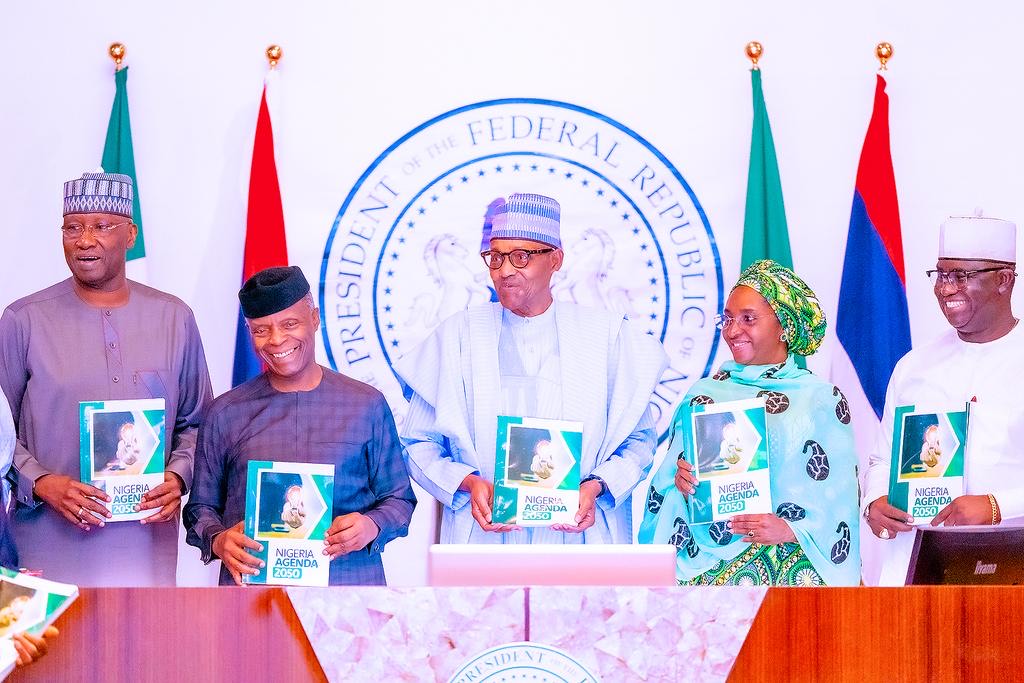Muhammadu Buhari, the President of Nigeria, has today launched a new long-term national development plan, the Nigeria Agenda 2050 or NA 2050, in Abuja, the Federal Capital Territory.
The plan, according to the government, is aimed at transforming the country’s economy and infrastructure, and making Nigeria one of the top middle-income economies in the world by 2050, with a per capita GDP of $33,328 per annum.
Speaking at the launch, Buhari said, “The Nigeria Agenda 2050 has the vision of a dynamic, industrialised and knowledge-based economy that generates inclusive and sustainable development for the country.”
The Nigeria Agenda 2050, is a successor to the Nigeria Vision 2020, which was launched in 2009. According to Buhari, “the Agenda 2050 is expected to succeed Nigeria Vision 2020 and the Economic Recovery and Growth Plan 2017-2020, which are due to elapse by December 2020.”
He emphasised that the plan was developed through a participatory approach, with input from various stakeholders, including state governments, development partners, and the private sector: “I am confident that the plan will be effectively implemented, given the measures already in place for continuous plan implementation. Successive administrations will find the document useful in the delivery of electoral promises.”
Also speaking, Zainab Ahmed, the Minister of Finance, Budget and National Planning, said “with the expected improved capital accumulation, investment as a ratio of GDP is expected to increase from the current 29.40% to 40.11 % by 2050.”
The Nigeria Agenda 2050 is a comprehensive development plan that seeks to transform Nigeria into a dynamic, industrialised, and knowledge-based economy that generates inclusive and sustainable development for the country. The plan outlines specific measures to achieve its goals, including the development of critical infrastructure, job creation, and diversification of the economy away from dependence on oil.






